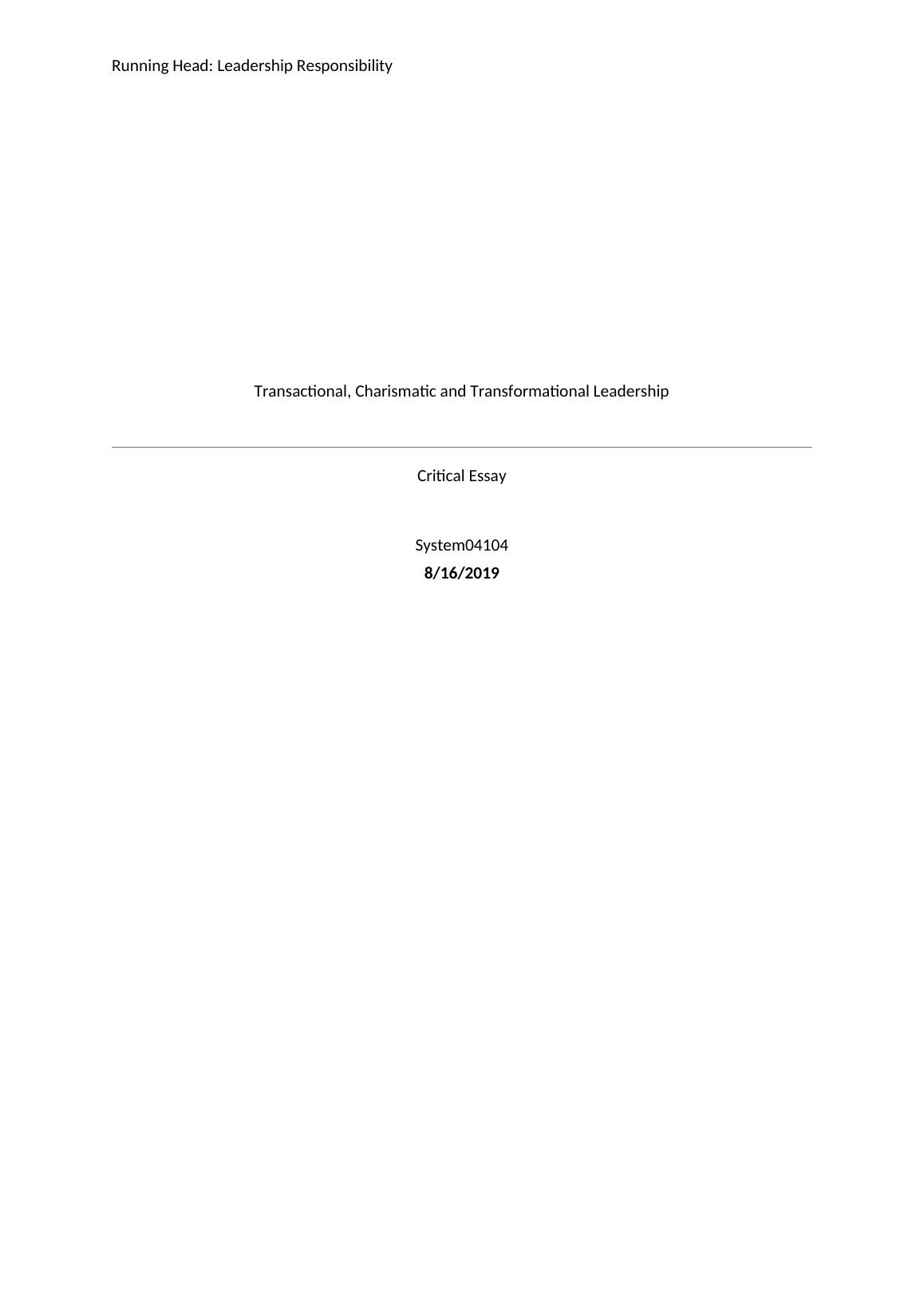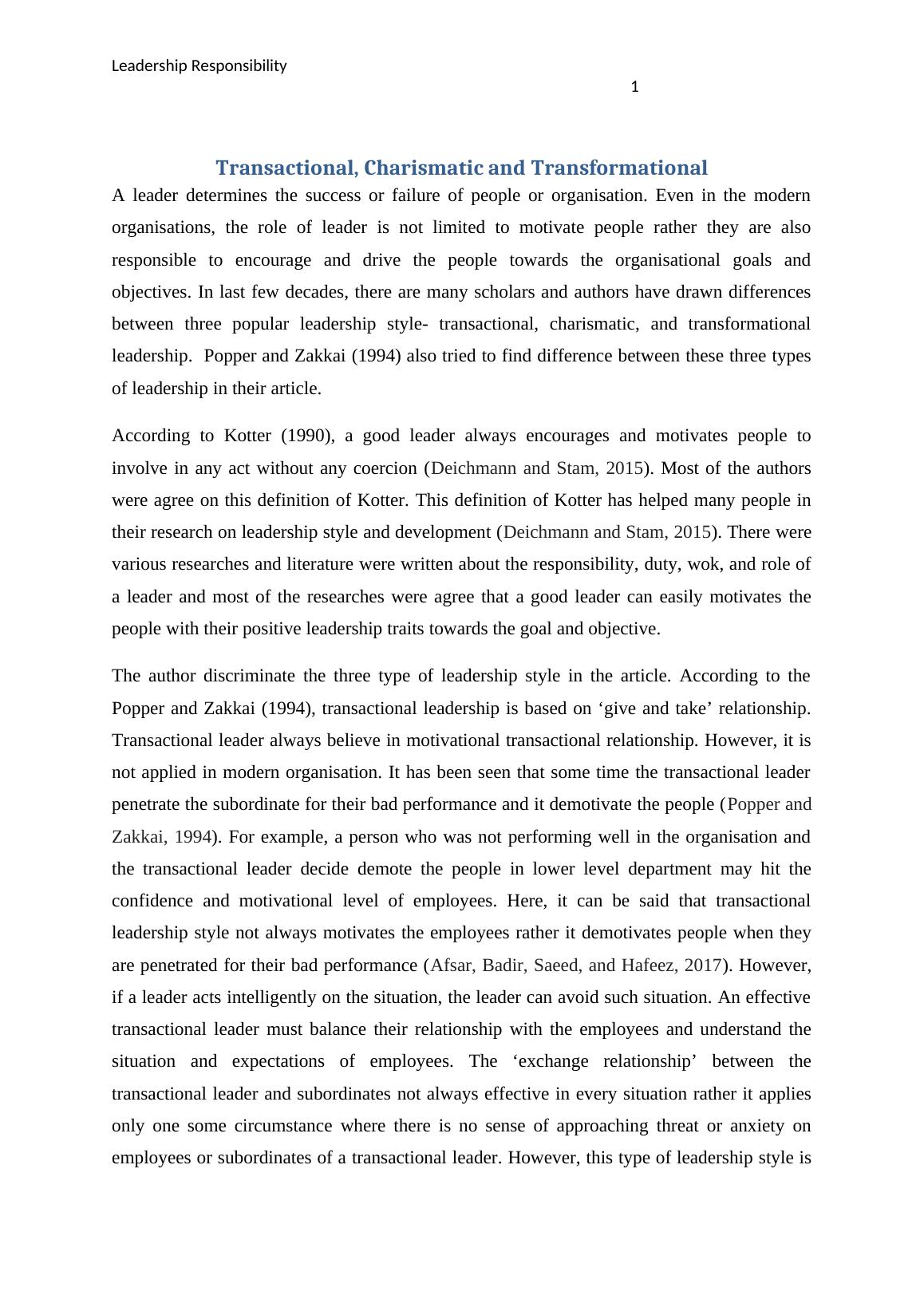Transactional, Charismatic and Transformational Leadership Article 2022
Added on 2022-09-23
5 Pages1750 Words26 Views
End of preview
Want to access all the pages? Upload your documents or become a member.
Leadership Skills and Attributes
|16
|873
|118
Essay | Self Reflection on Leadership Development
|12
|2603
|1676
Transformational Leadership and Katter’s Change Model
|13
|3776
|386
Traditional and Modern Models of Leadership
|8
|2388
|30
Leadership in a Changing context PDF
|24
|3641
|25
Understanding and leading change
|11
|444
|47


